A congress of the League of the Just opened in London on June 2, 1847.Engels was in attendence as delegate for the League's Paris communities.(Marx couldn't attend for financial reasons.)Engels had a significant impact throughout the congress -- which, as it turned out, was really the "inaugural Congress" of what became known as the Communist League.This organization stands as the first international proletarian organization.With the influence of Marx and Engels anti-utopian socialism, the League's motto changed from "All Men are Brothers" to "Working Men of All Countries, Unite!"Engels: "In the summer of 1847, the first league congress took place in London, at which W.Wolff represented the Brussels and I the Paris communities.At this congress the reorganisation of the League was carried through first of all....the League now consisted of communities, circles, leading circles, a central committee and a congress, and henceforth called itself the 'Communist League'."The Rules were drawn up with the participation of Marx and Engels, examined at the First Congress of the Communist League, and approved at the League's Second Congress in December 1847.
Article 1 of the Rules of the Communist League: "The aim of the league is the overthrow of the bourgeoisie, the rule of the proletariat, the abolition of the old bourgeois society which rests on the antagonism of classes, and the foundation of a new society without classes and without private property."The first draft of the Communist League Programme was styled as a catechism -- in the form of questions and answers.Essentially, the draft was authored by Engels.The original manuscript is in Engels's hand.
The League's official paper was to be the Kommunistische Zeifschrift, but the only issue produced was in September 1847 by a resolution of the League's First Congress.It was First Congress prepared by the Central Authority of the Communist League based in London.Karl Schapper was its editor.
The Second Congress of the Communist League was held at the end of November 1847 at London's Red Lion Hotel.Marx attended as delegate of the Brussels Circle.He went to London in the company of Victor Tedesco, member of the Communist League and also a delegate to the Second Congress.Engels again represented the Paris communities.Schapper was elected chairman of the congress, and Engels its secretary.
Friedrich Lessner: "I was working in London then and was a member of the communist Workers' Educational Society at 191 Drury Lane.There, at the end of November and the beginning of December 1847, members of the Central Committee of the Communist League held a congress.Karl Marx and Frederick Engels came there from Brussels to present their views on modern communism and to speak about the Communists' attitude to the political and workers' movement.The meetings, which, naturally, were held in the evenings, were attended by delegates only...Soon we learned that after long debates, the congress had unanimously backed the principles of Marx and Engels..."The Rules were officially adopted December 8, 1847.
Engels: "All contradiction and doubt were finally set at rest, the new basic principles were unanimously adopted, and Marx and I were commissioned to draw up the Manifesto." This would, of course, become the Communist Manifesto.
Personal letter written by Wilhelm Weitling, to Moses Hess, the day after the meeting of the Communist Correspondence Committee.Present at this meeting were: Weitling, Marx, Engels, Philippe Gigot, Louis Heilberg, Sebastien Seiler, Edgar von Westphalen (Marx's brother-in-law), Joseph Weydemeyer, and Pavel Annenkov.
-- meia -------------------------------------------------------------------------Brussels, March 31, 1846
Dear Hess!
Last evening we met again inpleno.Marx brought with him a man whom he presented to us as a Russian [Annenkov], and who never said a word throughout the whole evening.The question was: What is the best way to carry on propaganda in Germany? Seiler posed the question, but he said he could not go into further detail now, since some delicate matters would have to be touched upon, etc.Marx kept on pressing him, but in vain.Both became excited, Marx violently so.In the end, the latter took up the question.His resume was:
1.An examination must be made of the Communist party.
2.This can be achieved by criticizing the incompetent and separating them from the sources of money.
3.This examination is now the most important thing that can be done in the interest of communism.
4.He who has the power to carry authority with the moneyed men also has the means to displace the others and would probably apply it.
5."Handicraft communism" and "philosophical communism" must be opposed, human feeling must be derided, these are merely obfuscations.
No oral propaganda, no provision for secret propaganda, in general the word propaganda not to be used in the future.
6.The realization of communism in the near future is out of the question; the bourgeoisie must first be at the helm.
7.Marx and Engels argued vehemently against me.Weydemeyer spoke quietly.Gigot and Edgar did not say a word.Heilberg opposed Marx from an impartial viewpoint, at the very end Seiler did the same, bitterly but with admirable calm.I became vehement, Marx surpassed me, particularly at the end when everything was in an uproar, he jumping up and down in his office.Marx was especially furious at my resume.Ihad said: The only thing that came out of our discussion was he who finds the money may write what he pleases....















